Green energy, ‘living walls’ and recycled water: The eco-homes that pay their own mortgages
‘Bills are a design flaw,’ says property guru Humayun Khan, and his 13 high-tech eco-homes in Newhaven are proving just that, writes Sam Brooke. But the journey here took him all over the world – and almost to ruin

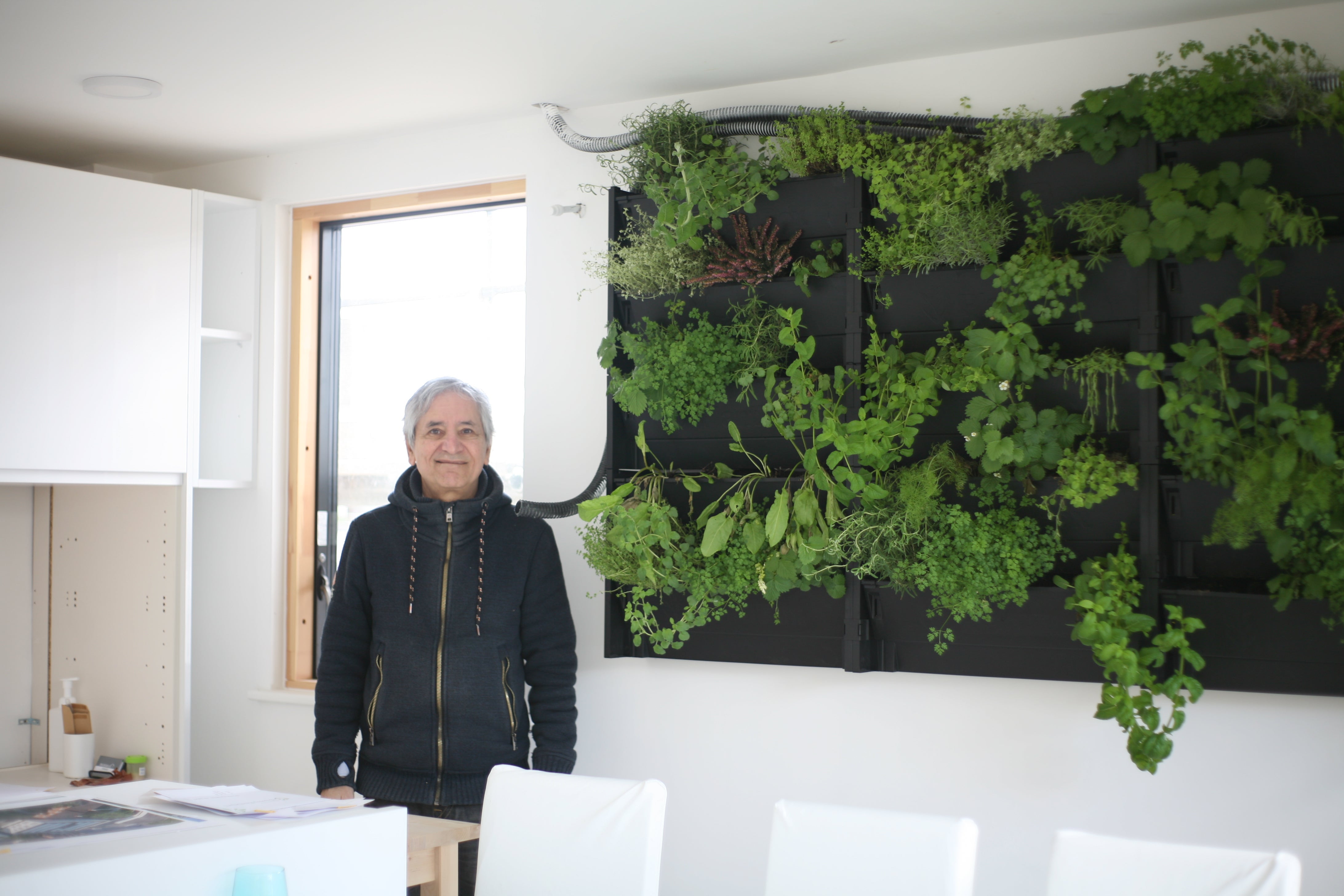
The East Sussex port of Newhaven is not just any old town. It was once identified as part of the government’s Towns Fund – but has yet to receive any funding. But there is something new happening along North Lane, which sits behind a Sixties telephone exchange and opposite a car park. Thirteen eco-flats are being built, and developer Humayun Khan says they will pay off their own mortgages.
“This is my trial run,” the 71-year-old beams in the front room of a completed show flat. He has just finished demonstrating how the sliding windows won’t need cleaning: they’ll be sprayed with a non-stick spray, meaning seagull mess will slide right off in the rain. More importantly, that’s an estimated £120 a year not spent on window cleaning that can instead be put towards the mortgage.
Under Khan’s system, the Newhaven homes are designed to be squeezed of all income and savings, making it possible to pay off the mortgage within 20 years. Rent the annexe to family, tenants, or for a holiday let; sell extra energy generated by solar panels, enhanced by mirrors; save money on food by growing vegetables in the indoor allotment; cut water bills thanks to the “greywater” system that recycles bathwater into toilet water. “Bills are a design flaw” is Khan’s catchphrase.
By his calculations, the homes will generate £12,310 of income and savings in the first year, enough to pay for 93.6 per cent of that year’s estimated mortgage repayment.
“In about 20 years the income and savings is equal to the mortgage,” he says, taking compound interest into account. After the mortgage is paid off, Khan’s homes will then effectively provide a living wage for their occupants: generating £35,404 a year by year 25, he claims. The developer rattles off his calculations – “with my Asperger’s, I can think 50 times more about whatever I focus on” – but he admits many are sceptical until they see the flats themselves. “People walk in and they say ‘I get it’,” Khan says.
Young people have zero chance of buying a home unless their parents can give them the money
Others are now taking notice. Baroness Whitaker, a Labour peer in the House of Lords, sees the scheme as “a model” for Newhaven. His ultimate goal is to tackle “rent slavery” and climate change; the former through affordability, the latter by making carbon-cutting “one of the most profitable activities on planet Earth”.
“Young people have zero chance of buying a home unless their parents can give them the money,” he said. “That’s a rip off.”
The road to these 13 flats in Newhaven took Khan all around the world: near ruin in 2008; a decade in ashrams; a meeting with a medicine man in Nevada; and leaving home in a tin can (a plane) at the age of five.
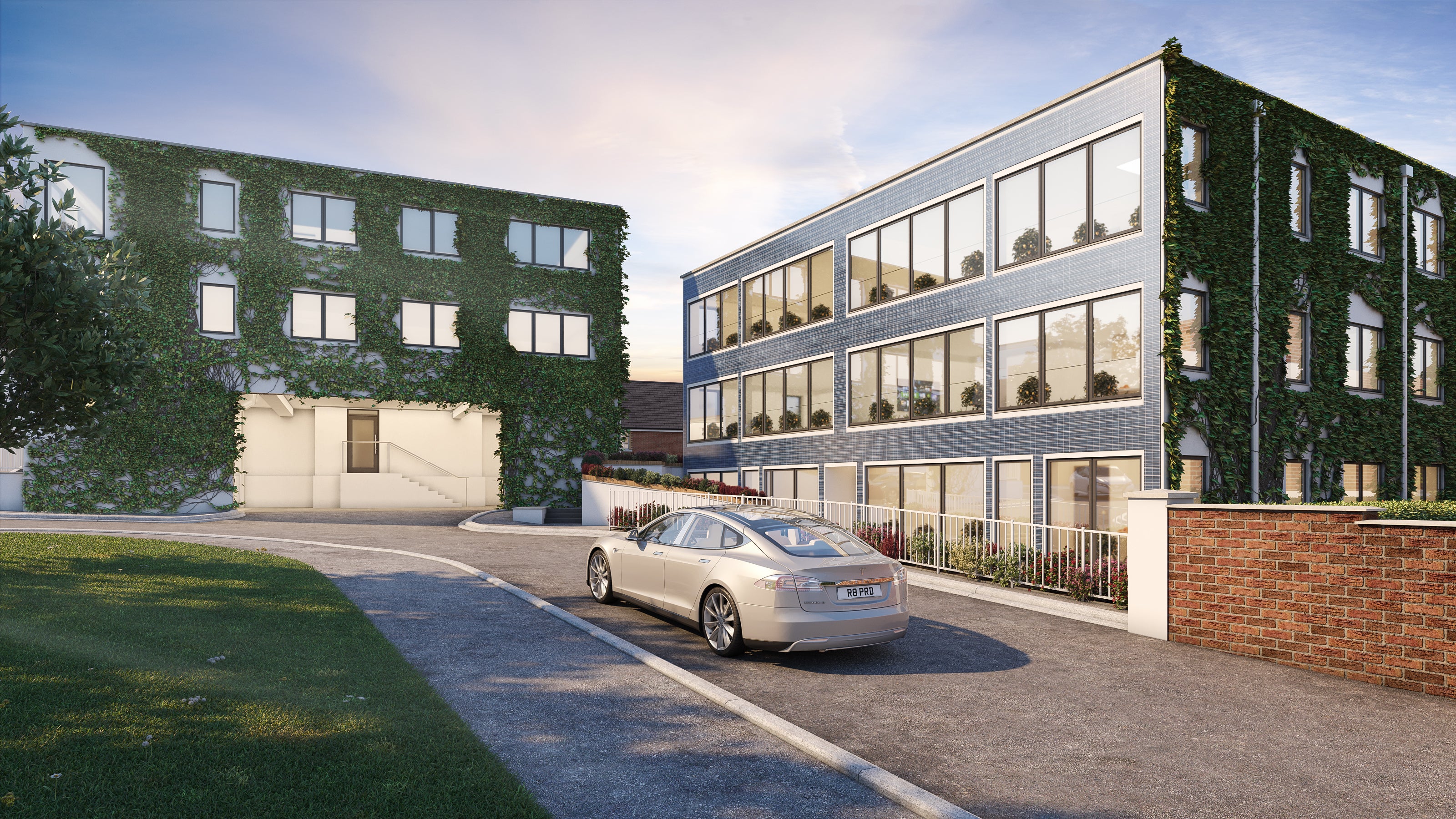
Khan’s memory of the Khyber Pass is a land of no police, no tax – and no bills. For three generations his family had been transporters along the legendary road between Afghanistan and Pakistan, part of the Shinwari clan of the Pashtun people. Khan’s father, Khanmir Khan, was forced to quit boarding school and take up the family business after his own father, Mirza Mir, was locked up by the British because three truckloads of Afghan fruit had spoiled under his watch.
The debt was paid and Khan’s grandfather was freed, but soon the question of inheritance came up. Custom dictated the wealth be spread equally across Mirza Mir’s six sons, but Khan’s father felt he deserved to keep the earnings he had made through smuggling.
Amid the dispute, Khan’s eldest brother was found dead at the bottom of a well, his uncles the prime suspects. “In the Khyber it’s like wolves, if the alpha is old a young one will rise up. [My father] had to kill or else he had to leave the tribes,” Khan explains.

Khanmir Khan chose to leave, taking the family first to Kabul in Afghanistan, then to Peshawar back over the border, and finally down south to the port city of Karachi. Not long after they moved, one of Khan’s sisters took her own life.
“Then he started shipping us to England.”
Hoping to tame the Khyber tribes, the Pakistani government offered favourable rupee-to-pound exchange rates to those who agreed to send their children to a boarding school abroad. A natural businessman, Khan’s father took advantage of the scheme. At the age of five, Humayun was the sixth and last child to be sent to Britain. It was 1955.
“I was in a tin can, it started shaking and moving,” he says. “No more mum and dad, no more family like I’m used to. At the airport someone took me to boarding school, I couldn’t speak English or understand anything.”
I worked two hours in the morning, five days a week, and made about £1m in profit a year
Khan has no memory of what happened before the plane journey. He pieced it together through sisters and relatives, but there is much he has had to make up. His passport says he is 71, but he doesn’t know his birthday – his mother’s answer when he asked was “winter”. He found out his first name was Humayun by asking his sister after being questioned by his boarding school headmaster, and picked “Khan” as his last name with the help of a passport officer when he first travelled at 18.
As a boy, Khan went to boarding school in Shoreham – another Sussex port town – for five years before his father moved to London when he turned 10. For another four years, though, Khan says he barely spoke. It was either yes, no, or a shrug “to save myself a word. I was a bit mad in that way,” he laughs.
Although Khan is a veteran of the property industry, he didn’t make his start until the age of 34. While working for a developer called Taffy in London, Khan says, he heard the company was planning to sell two homes in Primrose Hill.
“I asked him if he would let me develop one flat and pay him after I finished it. He agreed,” Khan says.
Then came the money: a £10,000 loan from Taffy in a new Coutts bank account, a £2,000 loan from the bank that Khan “stuck under my mattress and repaid it two weeks later”, allowing him to get a bigger £10,000 loan when he asked for one; and another £10,000 in government grants. His 37-year career as a property developer had begun – and he did well for himself.
“I worked two hours in the morning, five days a week and made about £1m in profit a year,” he says. The rest of his time he got on planes, travelling around the world. His current firm Miracles By Design was founded in 2002, building and converting around Sussex.
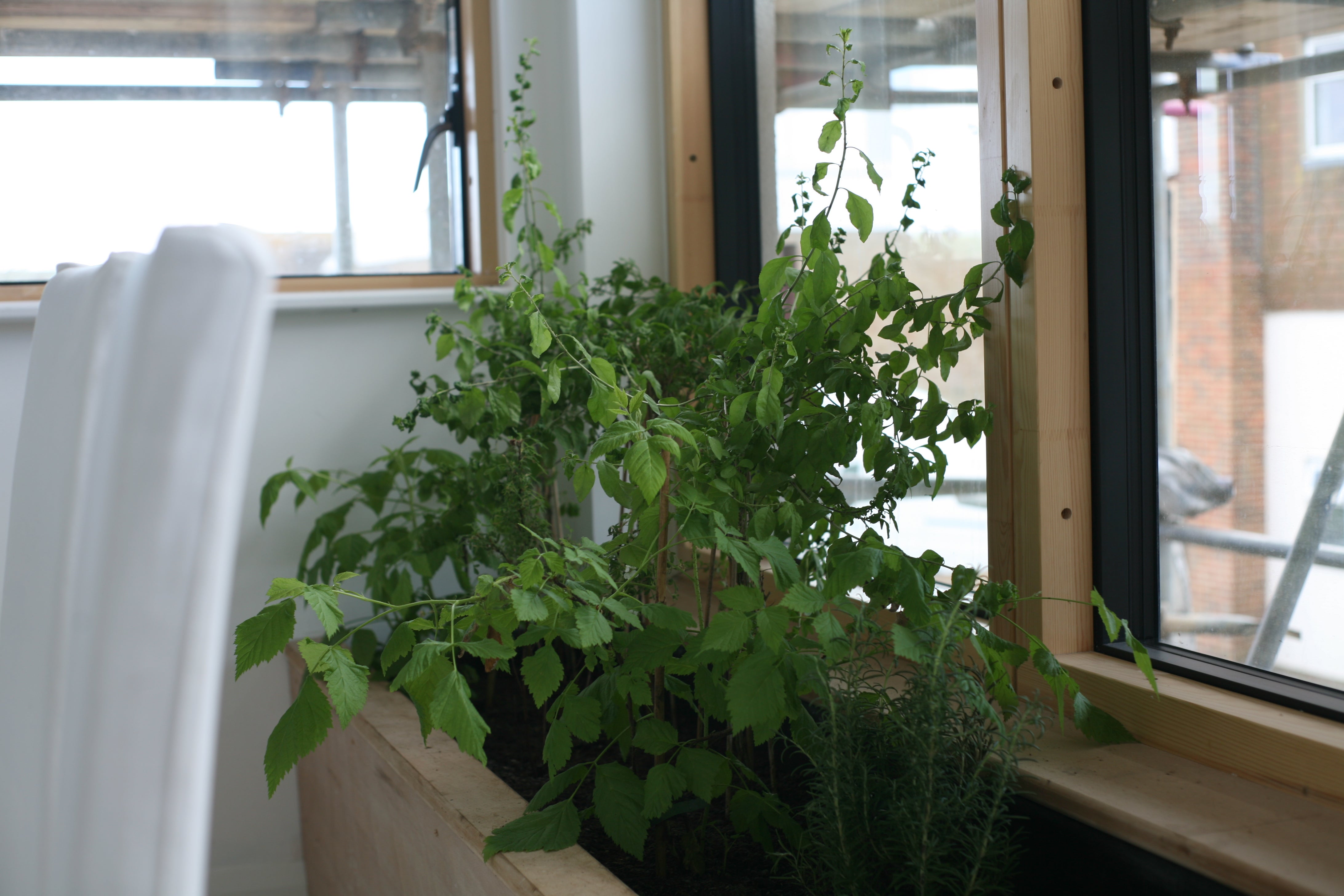
In January 2008, a building in Bexhill he was renovating was valued at £12.5m. By the summer its value had dropped to £8m, as the financial world melted.
“I lost £4.5m, I was almost broke,” he says. “I couldn’t pay for my daughter to go to school any more. I thought ‘I’ve had enough of this’.”
Heated discussions with creditors allowed Khan to keep himself and his company afloat, but since the collapse he has only worked on one project: his 13 homes in Newhaven.
While 2008 had revealed the weaknesses of the financial system at present, Khan began to look to another looming problem: climate change.
“The upside of losing my very, very nice financial life, doing exactly what I wanted to do – when that came to an end, it made me wake up,” he says.
A bullet-pointed email sums up the lessons he learnt:
“13 years ago I understood that climate change would bring:
- The sixth mass extinction;
- Collapse of the entire global financial system;
- It’s man made and man can unmake it.”
Another three bullet points outline his vision: “I made a commitment to create solutions to:
- Prove ending carbon emissions is the most profitable activity on Earth;
- Creating an entirely new financial system, instead of existing where 1 per cent own 80 per cent of wealth;
- Building to the highest eco standards in the world is not just for the rich, because these homes pay for themselves – even the 22 per cent – 14 million people in official poverty can live in them.”

“13 years later I have proof of concept,” he wrote. “Galileo was put in jail for saying the world is round and I can prove all the experts are wrong.”
Khan has done a lot of thinking in those 13 years, fine-tuning his design to cut the building’s carbon footprint as much as possible. He follows the “Active House” standard, a series of principles that prioritise the inhabitants’ health while ensuring the home has a low environmental impact.
No conventional brick-and-mortar feature is safe. Instead of gas boilers, the Newhaven homes will use far infrared heating panels on the ceiling. The foundation and retaining walls use 70 per cent recycled concrete. Even the fridges, washing machines and bathrooms will emit ozone to keep food fresh, dry clean clothes and kill bacteria respectively.
I needed to meditate for around 2 to 4 hours a day to function, otherwise I am like a vegetable in some ways
These are green homes – literally. The outside walls will be covered in a hazelnut hedge, “providing a habitat for wildlife, flowers for bees and free nuts for residents”, as the Miracles By Design website notes. Inside, “green walls” of plants in each room will clean the air, while vertical allotments will be maintained by an in-house gardener so fresh fruit and vegetables are on tap.
The cherry on top will be the “vertical herbal apothecary” - each household will have free consultations with herbalists (“one from the west and one from the east,” Khan insists) to determine which teas will be right for them.
It may seem a novelty, but it also hints at another formative experience for Khan – when he followed a sign to Carlin, Nevada, to see Rolling Thunder.
There was a reason why Khan was largely silent until he was 14. He claims he saw spirits accompany everyone, saying what their human counterparts really felt. Tired of the duplicity, he did not want to speak.
“People have a history before we arrive in our human body,” he says.
Khan had a number of spiritual experiences as a young man, most notably on a road trip in America when he was “18 or 20”. A year before he had read about Native American medicine man Rolling Thunder.
“I was driving a van in Nevada and saw the name of the town Carlin, where he lived, on a road sign,” Khan says. “I went into the town and asked at a grocery store about where he lived. I went to the house and he opened the door.
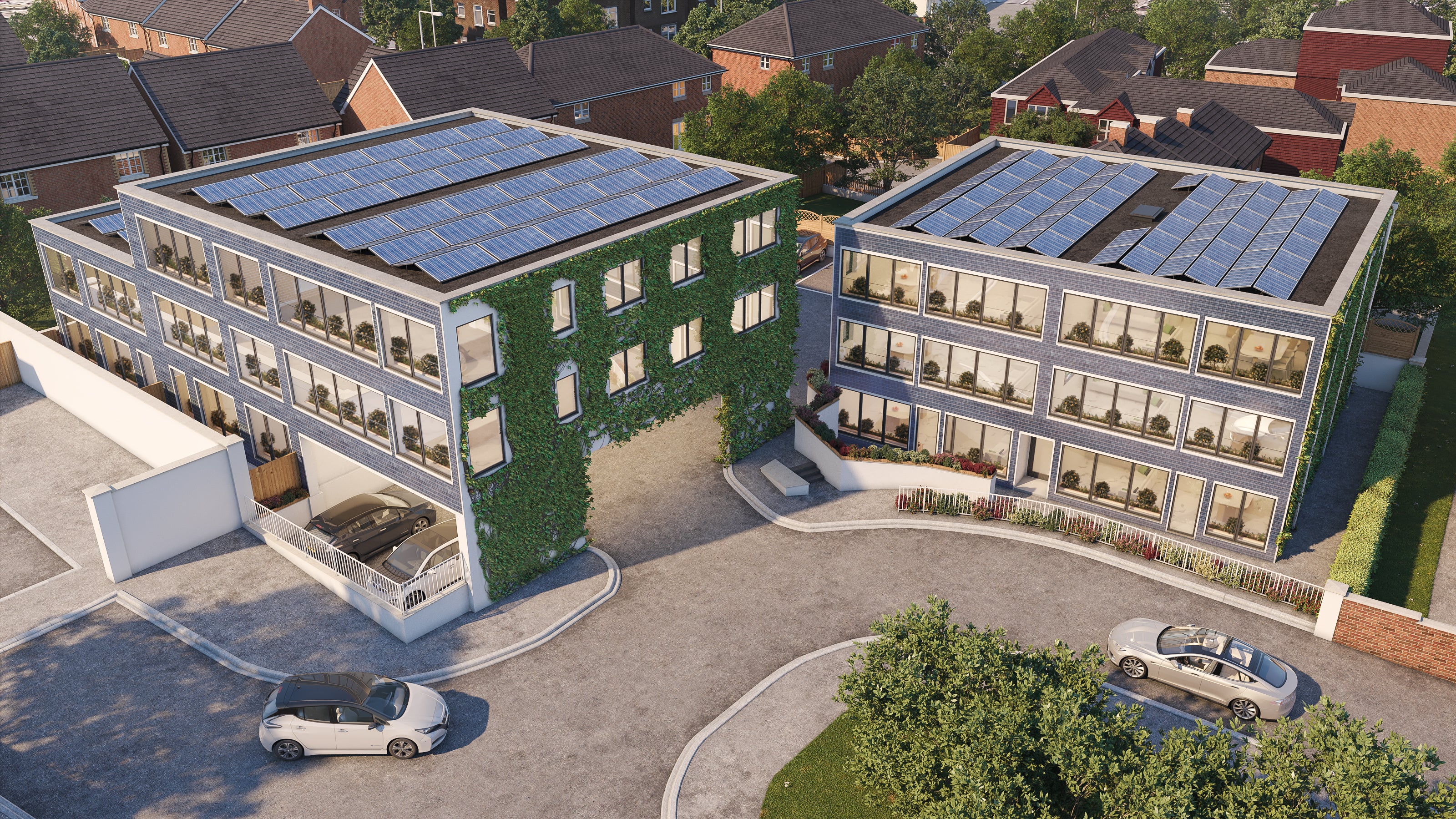
“Inside I could hear his dead wife talking to me, telling me that he was ill and stopped his work because he felt guilty about not saving her.”
He expected Rolling Thunder to throw him out.
“Instead he showed me a picture of her and I told him what his wife wanted to say,” he said.
A month later, Khan was driving in Eastbourne – another coastal town in Sussex – and noticed a large owl at the side of the road flapping its wings, eventually lifting off and flying away.
“I rang up [Rolling Thunder’s] house and his daughter said that he was well and on the road and teaching again,” Khan says. “I’ve experienced things like that in my life, now I control it more – only when I travel abroad.”
When he wasn’t working his two hours a day, five days a week as a property developer, Khan travelled and sometimes moonlighted as a “healer”, in his words, “read[ing] their body and tell[ing] them stuff about themselves”. He remembers reading people’s bodies in the main square Kazan, Russia, and speaking to a woman’s dead mother in what is now Volgograd.
Naturally he kept this side away from his business colleagues, and qualifies his spiritual admissions: “This is where you might think I’m crazy.”
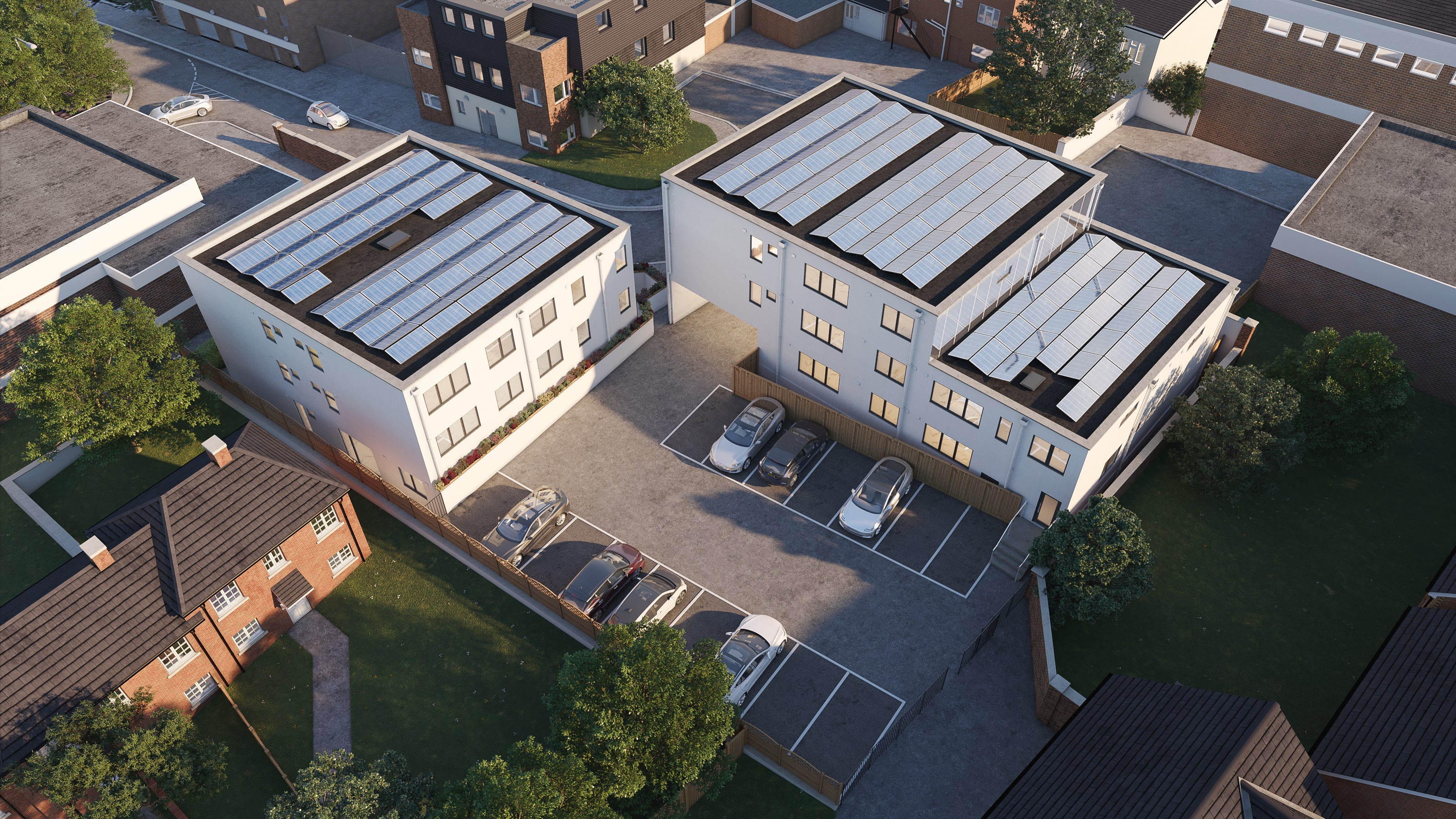
But a major source of strength for Khan, struggling with his Asperger’s as a young man, was 12 years spent living in ashrams – monasteries – around England from the age of 22.
“I needed to meditate for around 2 to 4 hours a day to function, otherwise I am like a vegetable in some ways,” he says. “I found it impossible to stop my mind.”
The only thing that helped, he says, was meditation techniques learnt from Prem Rawat, the leader of the Divine Light Mission religious movement which operated ashrams around the country until the early Eighties.
“[It] showed me how to go inside,” Khan says. “I moved into some ashrams that he had at the time as part of my recovery from overwhelm.”
Read More:
For all the talk of spirits, Khan’s focus is firmly on his 13 homes in Newhaven. Expected to sell for about £330,000 each, he hopes this small project will open the path for a bigger development next – 50 homes at least.
The construction works in North Lane are the product of 13 years’ thinking for Khan. Of all the calculations he provides over email during the fact-checking process, one sticks out.
“My answers are based on 13 years x 50 due to Asperger’s whole brain thinking = 650 years for normal people,” he writes. “I stand for my own integrity.”
Join our commenting forum
Join thought-provoking conversations, follow other Independent readers and see their replies
0Comments